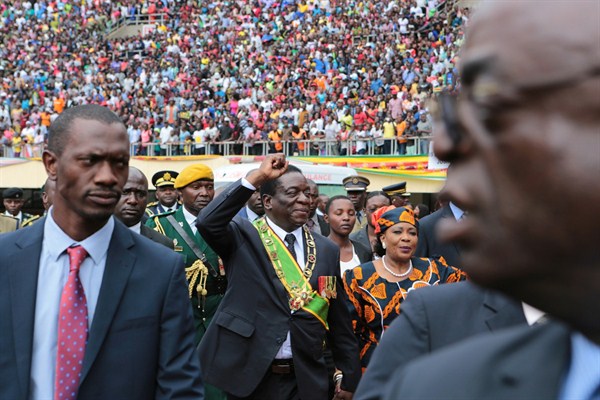Since his elevation to the presidency following the November 2017 military intervention that removed Zimbabwe’s longtime ruler Robert Mugabe from power, Emmerson Mnangagwa has embarked upon a global charm offensive. This has been designed to restore the country’s reputation, which was badly battered by the turmoil triggered by Mugabe’s violent land seizures; repression of the main opposition party, the Movement for Democratic Change, or MDC; and a series of rigged elections. In stark contrast to the belligerent anti-imperialist rhetoric of Mugabe, Mnangagwa has adopted the vocabulary of “reform” while seeking to build bridges to previous adversaries such as Britain and the United States.
This new approach has yielded several successes. In April, Mnangagwa’s leadership drew praise from the British foreign secretary, Boris Johnson, who looked forward to Zimbabwe rejoining the Commonwealth of Nations; Mugabe pulled Zimbabwe from the Commonwealth in 2003. The European Union has also signaled its commitment to a new relationship with Zimbabwe.
In the most explicit recognition that Zimbabwe had entered a new era, Mnangagwa was also invited to attend the annual World Economic Forum in Davos in January, which allowed him to repeat his now trademark message that Zimbabwe is “open for business.”

